How can one curator do his small part to bridge cultural differences?
One day in 2001, out of the blue, I received a phone call from a State Department official, inviting me to go to Spain to lecture on American jazz. Surprised but honored, I quickly accepted. In Madrid and Barcelona, I presented six lectures on Louis Armstrong and Ella Fitzgerald. Though I had lectured to specialist groups in Canada, Germany, and Sweden, this was my first occasion to officially represent the United States, to engage in a bit of cultural diplomacy. This experience was a highlight of my year.
The next opportunity came in 2006, when the State Department’s Speaker Program sent me to South Africa. In succeeding years, I spoke to audiences in 22 countries spread from southern Africa to northern Europe and as far east as Moscow.
Each time, I found it moving to engage people across the boundaries of nationality and language, to enhance understanding, and to build friendships. I was thrilled to do my tiny part to bridge cultural differences, and to shine a spotlight on some of America’s proudest artistic contributions. It’s been fascinating to learn how people from other cultures and musical traditions have come to appreciate American music.
In both Nairobi, Kenya, and Lusaka, Zambia, speaking on behalf of the US Embassies, I gave illustrated presentations on the life and music of Louis Armstrong. In Nairobi, a young musician came up to me afterward and said, “Life will never be the same again.” In Lusaka, a young man came and said, “You’ve changed my life forever.” I took their joy to mean that Louis Armstrong had transformed their lives, and that still makes me beam with delight. Before Armstrong, the world had never heard trumpet playing or singing like his. And after seven decades, it was still new and exciting to these young Africans.
In Kenya, a noted professor from a major university in Nairobi said to my colleague Ellen Bienstock, the US Cultural Attaché, that he was surprised and impressed, given how bad he heard that racism is in the US, that a white man would extol the virtues and genius of Louis Armstrong so passionately. When I learned this later, I remarked to Kennedy Wakia, a Kenyan working at the U.S. Embassy, “And I had thought my skin color might be a liability.” Ken replied, “No, it’s an asset.”
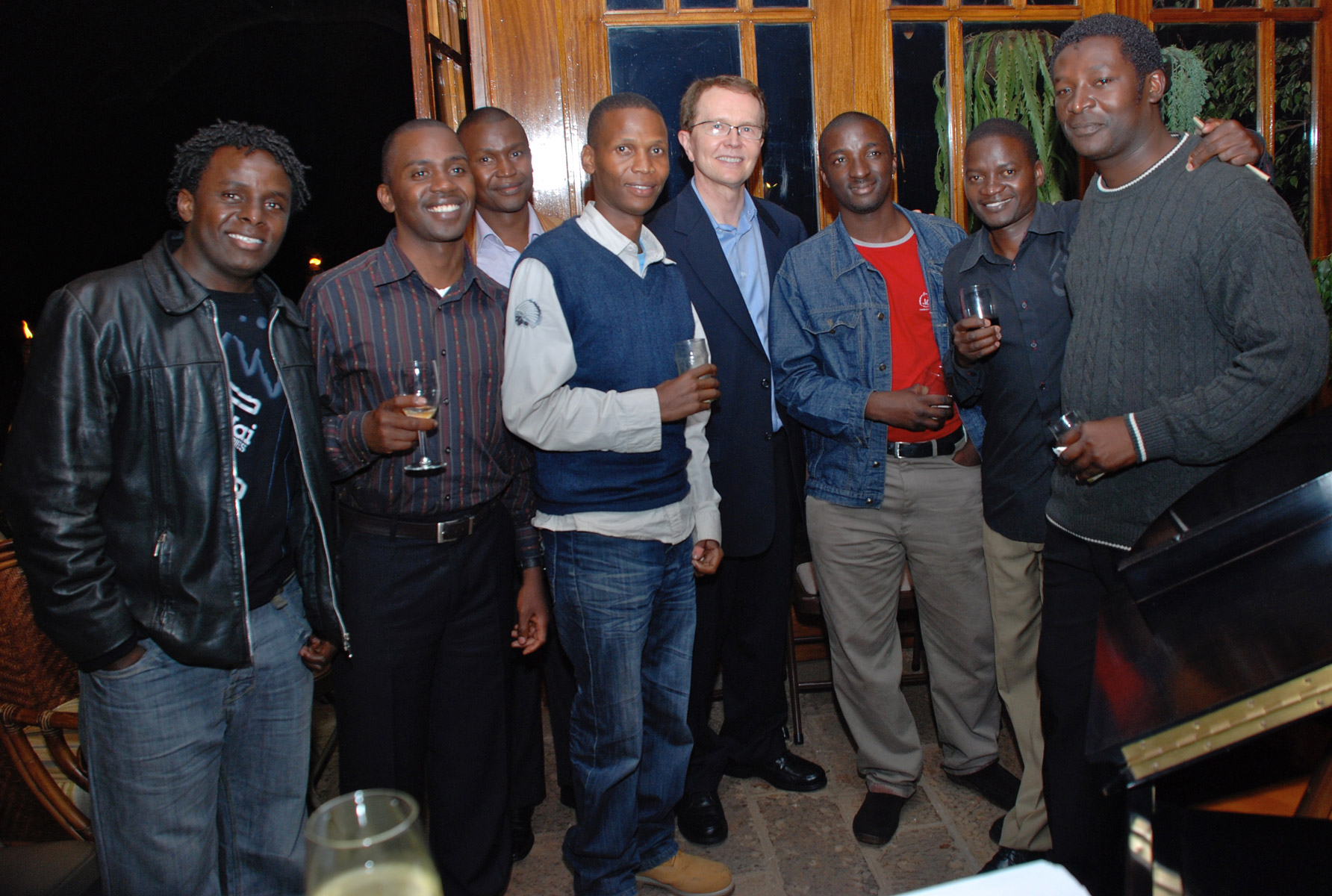
With a group of Kenyan musicians in Nairobi

The noted Kenyan trumpeter Patrick Sanna and his son with a Smithsonian Jazz Appreciation Month poster that I brought to them. Sanna idolized Louis Armstrong.
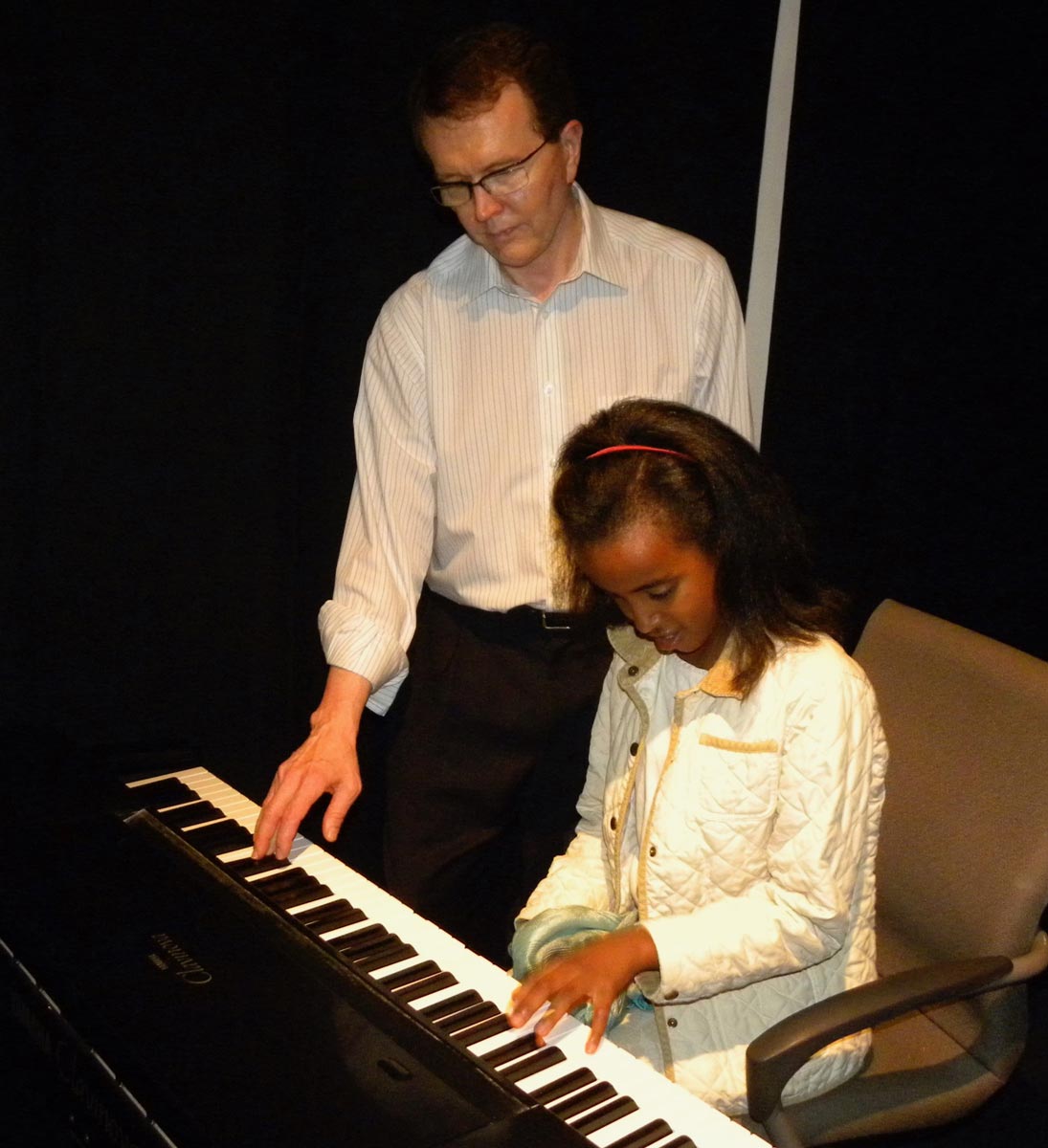
Giving some keyboard pointers to a girl in Nairobi
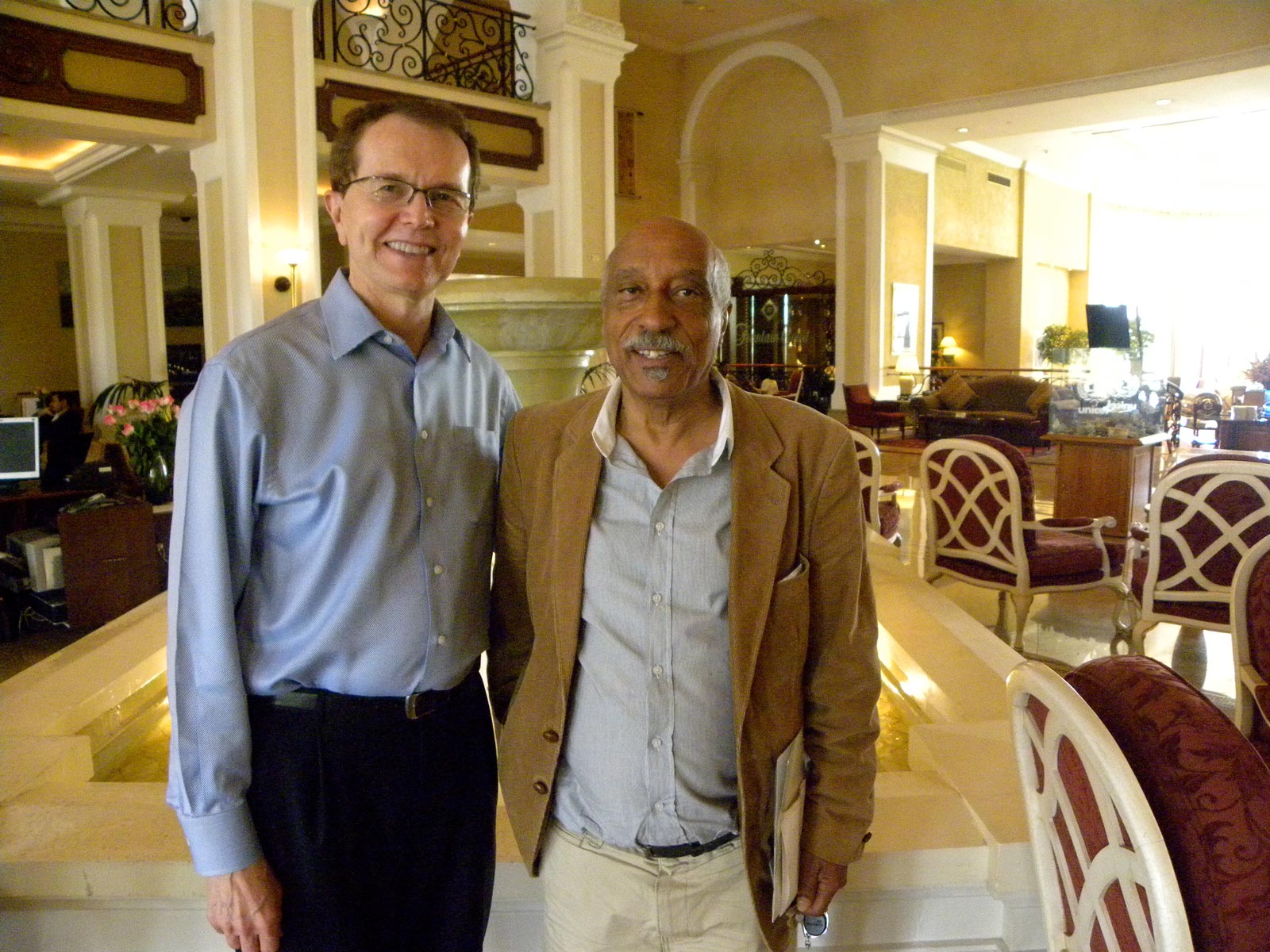
AFTER INTERVIEWING MULATU ASTATKE, THE “FATHER OF ETHIO-JAZZ,” IN ADDIS ABABA
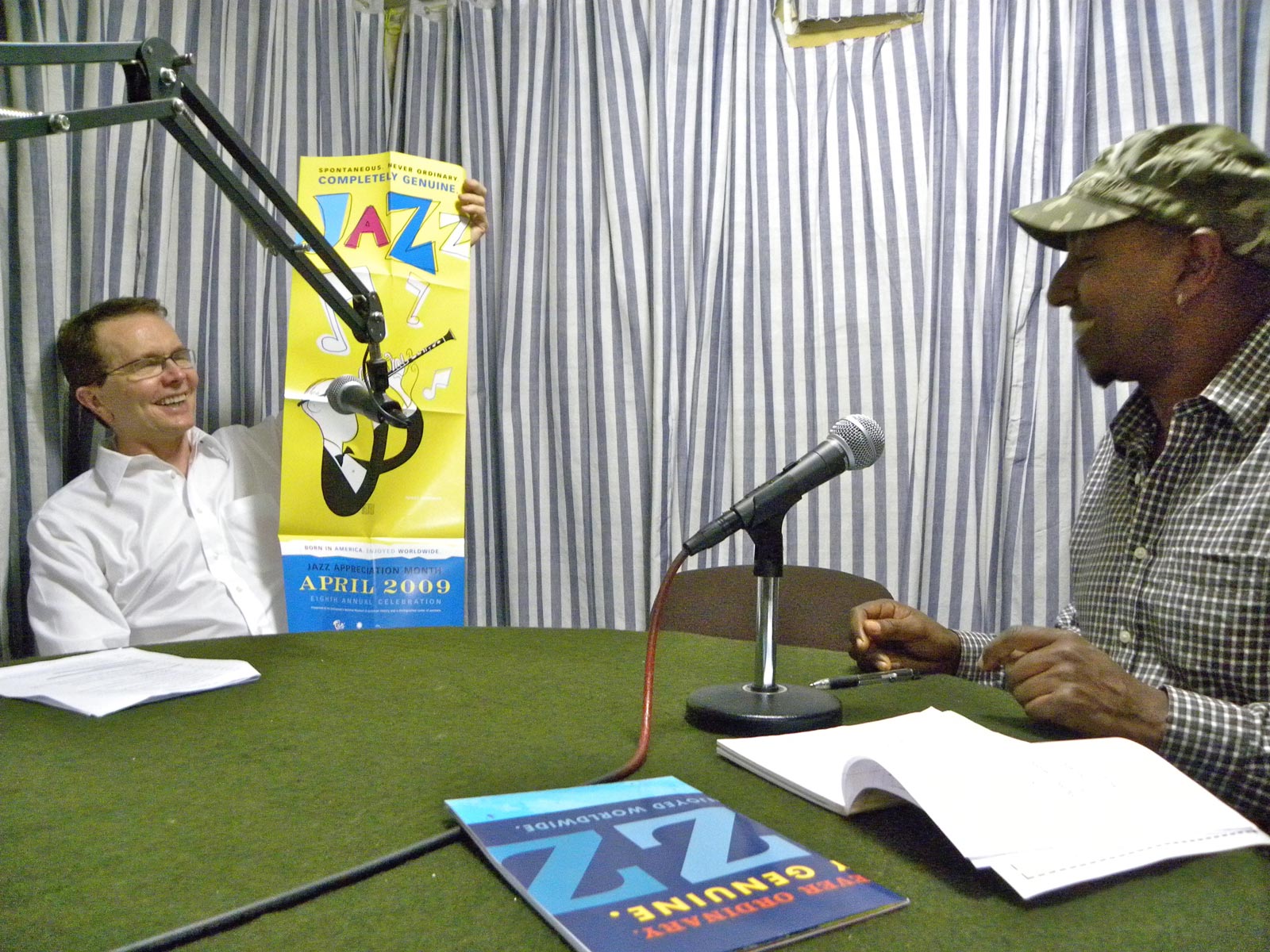
A RADIO INTERVIEW IN ADDIS ABABA WITH BASSIST HENOCK TEMESGEN, CO-FOUNDER OF JAZZAMBA SCHOOL OF MUSIC.
When I went to South Africa in 2006, a group of young boys, many of them orphans, traveled an hour and a half from their township—of tin-roofed shacks with no running water—to hear me speak. When I began to play a recording of Armstrong’s Hello, Dolly!, three of the boys sang along. They knew all the words. I was just floored. Armstrong—who was born more than a century ago in a country halfway around the world—and his music were able to leap with ease over geography, nationality, culture, and generations to communicate and inspire young people. Decades later, he was still radiating excellence, humanity, and joy. I found that deeply inspiring.
Sometimes I was asked to demonstrate American blues, ragtime, and jazz, and found playing the piano an even better way of connecting with audiences than talking to them.
In these travels, I discovered that there is a hunger for things from America that are true, uplifting, positive, beautiful and inspiring. Jazz is that—among the best parts of American culture, reflecting such core values as freedom, individuality, cultural diversity, risk-taking, and innovation.
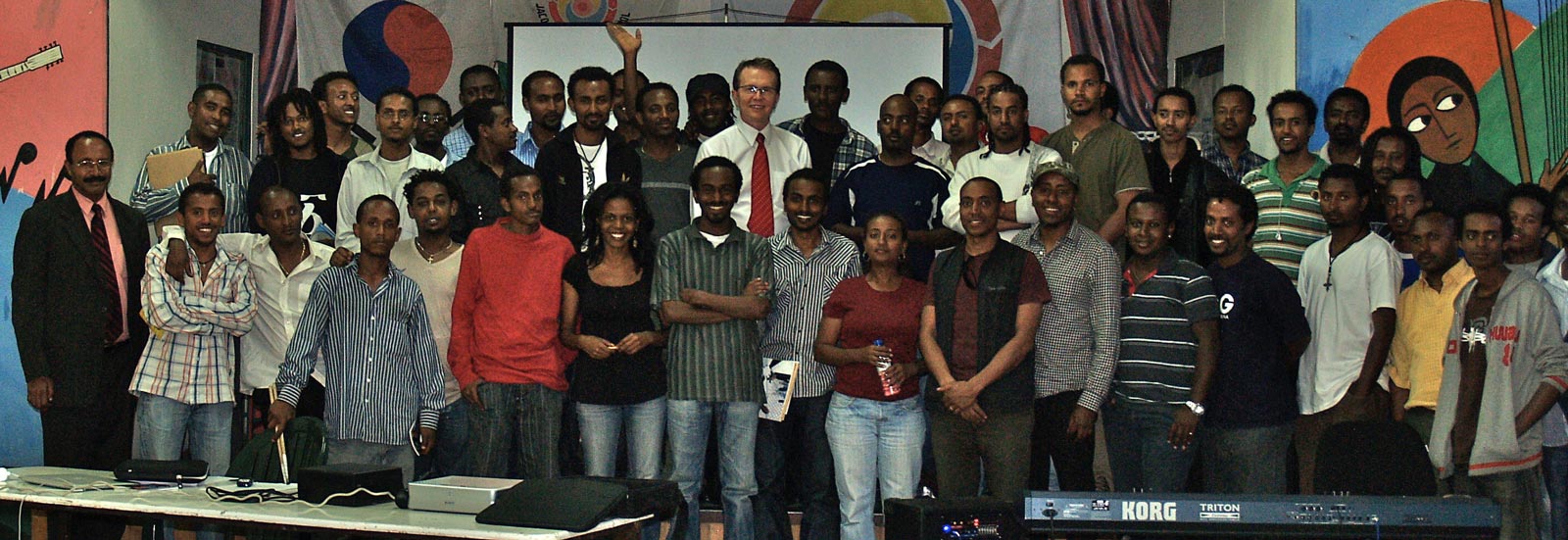
AFTER SPEAKING TO, AND PERFORMING FOR, STUDENTS AT THE AFRICAN JAZZ SCHOOL, LATER RENAMED THE JAZZAMBA SCHOOL OF MUSIC, IN ADDIS ABABA, ETHIOPIA
With the inspiring South African jazz educator Johnny Mekoa, who also studied at Indiana University with my mentor, David Baker, at the Music Academy of Gauteng, a school he founded near Johannesburg, South Africa
To provide the best experiences, we use technologies like cookies to store and/or access device information. Consenting to these technologies will allow us to process data such as browsing behavior or unique IDs on this site.